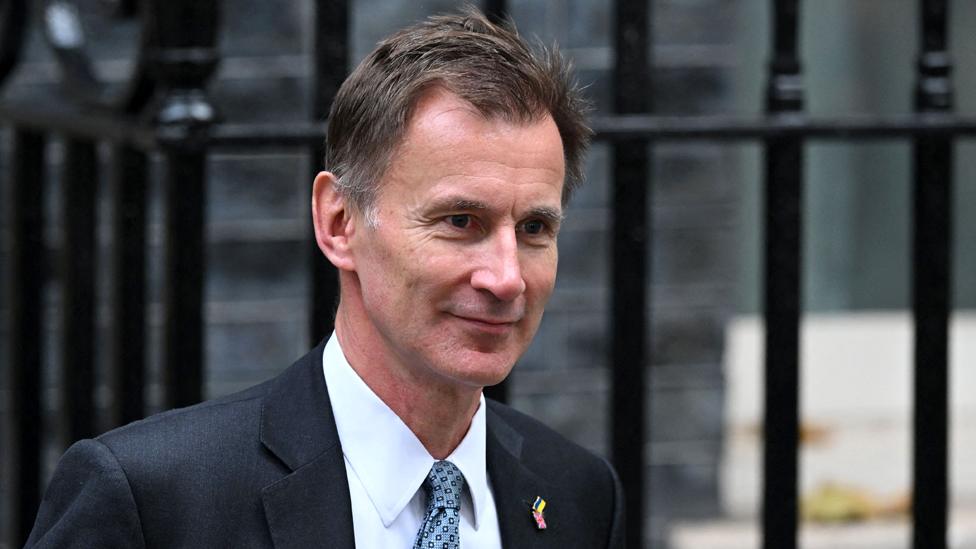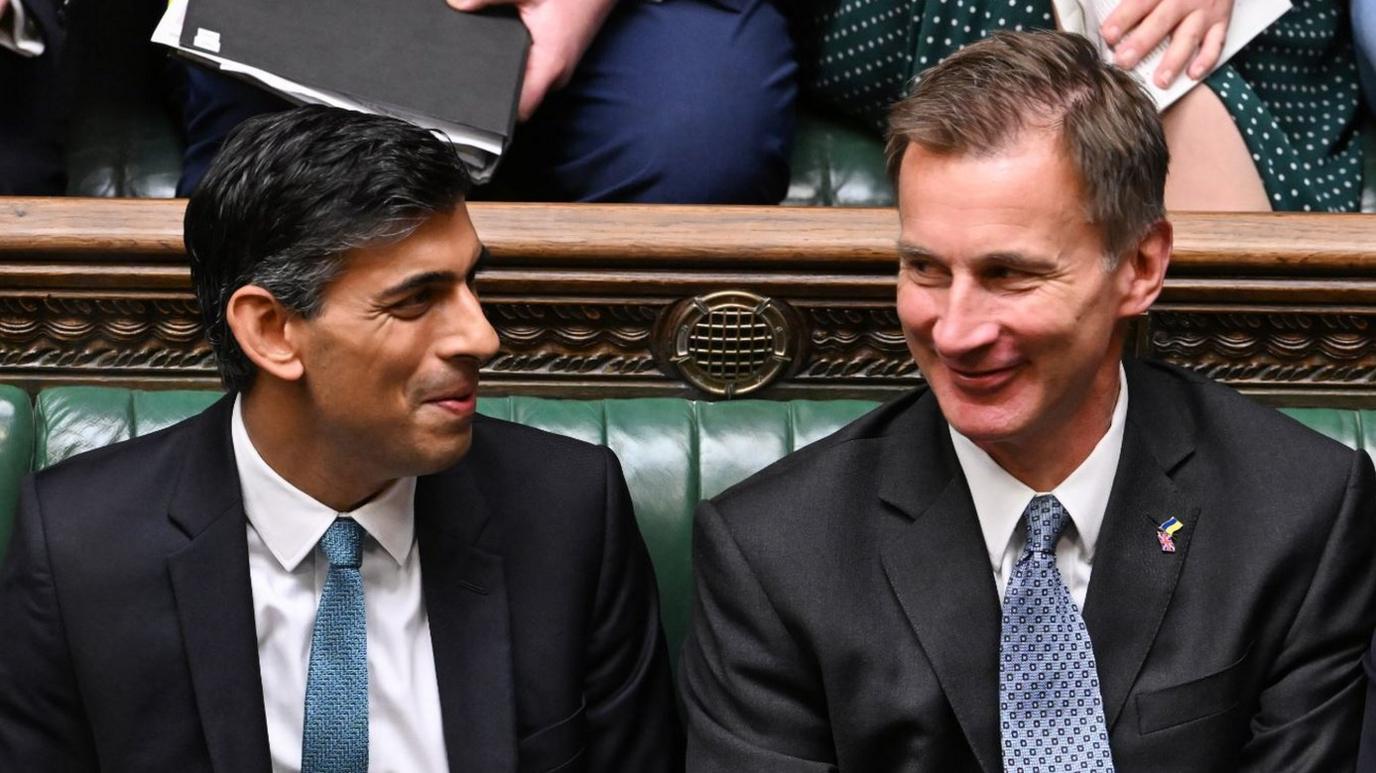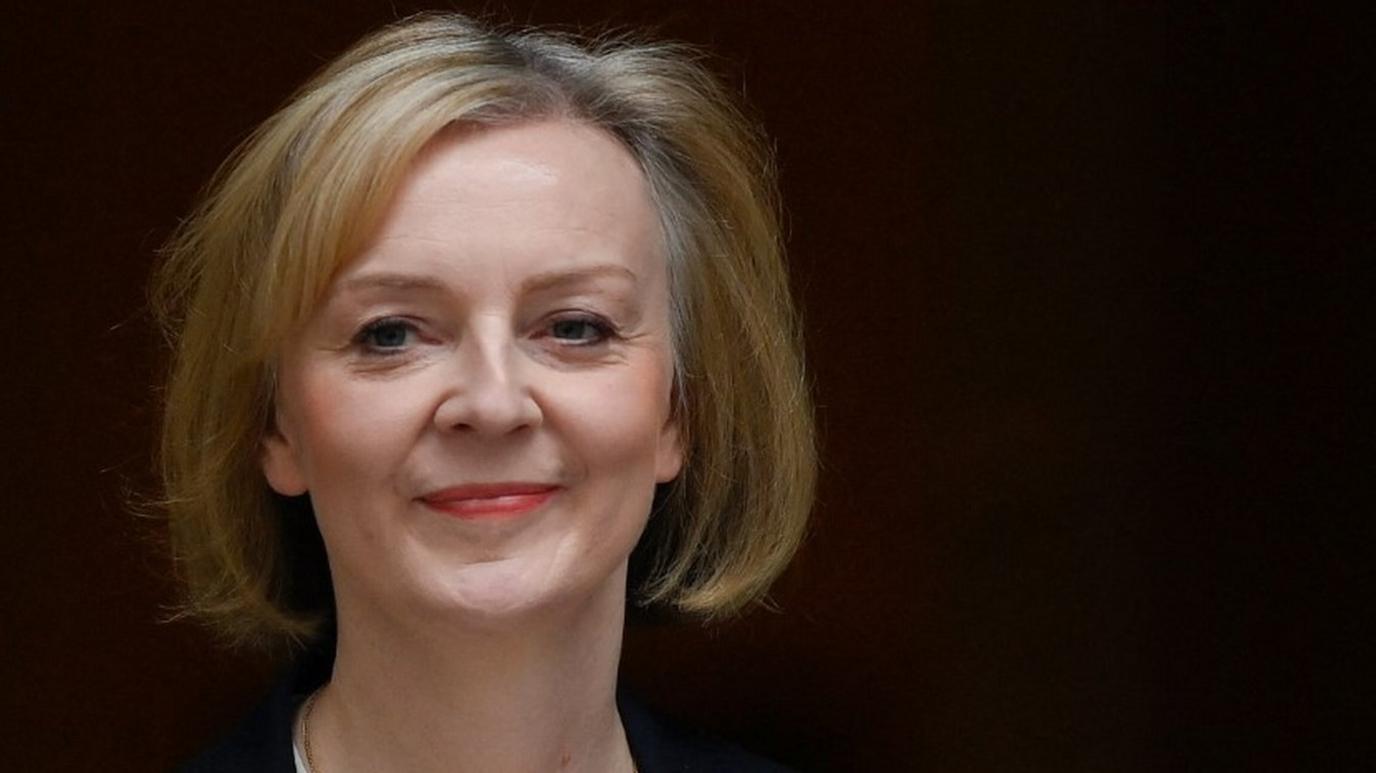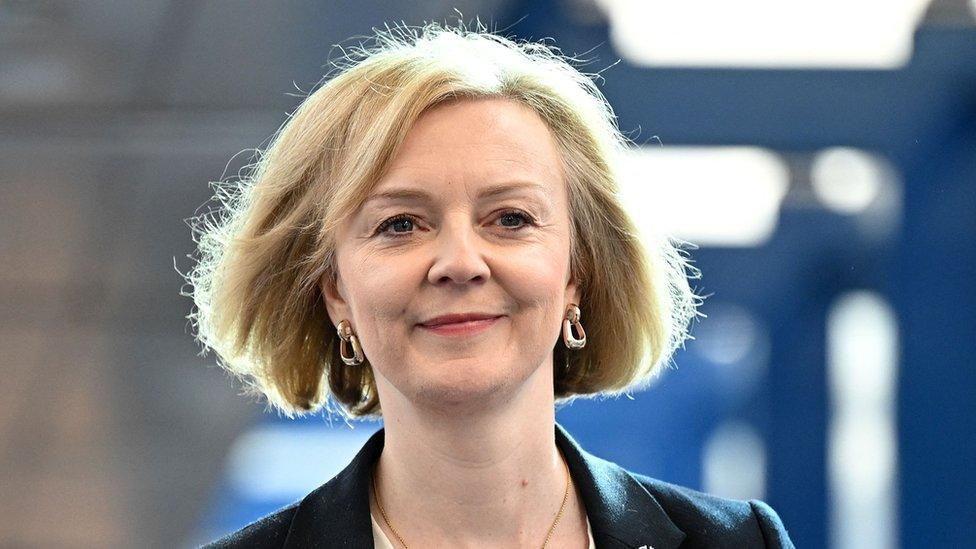Pensions: Downing Street refuses to commit to triple lock
- Published
- comments

Rishi Sunak will not commit to raising the state pension in line with inflation ahead of a statement by his chancellor next month, No 10 has said.
The PM's spokesperson acknowledged that "uncertainty" over the state pension was "difficult for pensioners".
Just last week, his predecessor Liz Truss said she was committed to the pensions triple lock.
The pledge means payments rise by whichever is highest - inflation, average earnings or 2.5%.
Some Tories MPs have been concerned the manifesto pledge could be ditched and have argued pensioners should be given certainty their payments will keep up with the rising cost of living.
Inflation, the rate at which prices rise, is currently running at a 40-year high of 10.1%, meaning wages, pensions and benefits are lagging behind prices.
The PM's press secretary said a decision on whether to stick to the pensions triple lock would be "wrapped up into the fiscal statement" on 17 November.
"But what I can say is he has shown through his record as chancellor is that he will do what's right and compassionate for the most vulnerable," she said.
On Thursday, the PM's spokesman said Mr Sunak and Chancellor Jeremy Hunt would "take the time to work carefully and diligently" to develop policies that would provide long-term certainty in the face of "challenging" economic circumstances.
The chancellor's statement on the government's plans for tax and spending has been delayed by more than two weeks.
This will give Jeremy Hunt, who has been in the role for less than two weeks, more time to prepare, while the chancellor said it would also mean the plans were based on the "most accurate" economic forecasts.
Mr Hunt had already scrapped almost all his predecessor's tax cuts but he still needs to find billions of pounds of savings to keep the UK's debt under control.
The SNP Westminster leader says people are facing a "winter of uncertainty ahead"
During Prime Minister's Questions, Mr Sunak also would not commit to raising benefits in line with prices.
SNP Westminster leader Ian Blackford asked if the PM would "reassure people and guarantee that benefits will rise in line with inflation in his upcoming budget".
In response, Mr Sunak said: "My record on this is clear. Through the difficult times that we faced in this country through Covid I always acted in a way to protect the most vulnerable.
"That's because it is the right thing to do and those are the values of our compassionate party, and I can absolutely reassure him and give him that commitment that we will continue to act like that in the weeks ahead."
Mr Sunak's new work and pensions secretary, Mel Stride, has previously suggested as a backbencher that benefits should keep pace with inflation.
Pensions and benefits normally increase every April, with a decision taken the previous autumn.
The pensions triple lock has been in place ever since it was introduced under the Conservative-Liberal Democrat coalition in 2010, apart from a one-year suspension during the pandemic.
Labour's shadow work and pensions secretary Jonathan Ashworth accused Mr Sunak of not being on the side of pensioners struggling through the cost-of-living crisis.
"Rishi Sunak stood on a manifesto in 2019 on a pledge to keep the triple lock. Now he's threatening that promise to Britain's retirees," he said.
The government faces a potential rebellion from some Tory MPs if it does not increase the state pension and benefits in line with inflation.
Certain benefits, including disability benefits and carer's allowance, must increase in with inflation by law.
However, for working-age benefits like universal credit no decision has yet been made on whether a rise will be linked to prices or average wages.
Related topics
- Published26 October 2022

- Published26 October 2022

- Published19 October 2022

- Published4 October 2022
